Alumni Online Resource
The College of Medicine has recently launched a new online resource to keep in touch with alumni. You can find the alumni e-mail directly on the Medicine Alumni Society website. This online directory is designed solely for the use of University of Iowa alumni, faculty and students to keep connected in friendship and educational partnerships.
To update your alumni records and request more information about the Medicine Alumni Society programs Click here.
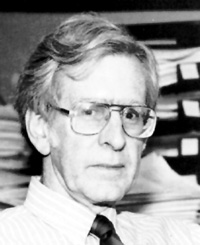 Charles E. Platz, MD, Honored Charles E. Platz, MD, Honored
The Annual Iowa Anatomic Pathology Course took place in early October. It was a special one for two reasons. First, it was the tenth annual course, and second, it formed the basis of a tribute to Dr. Charles Platz. A dinner honoring Charley was held on Friday, October 5, 2001, at which several individuals offered some personal comments.
The evening was brightened by the presence of friends and colleagues from near and far, many of whom were residents and fellows trained by CEP (come now, what else could come to mind when you hear those three letters?).
Tribute from Dr. Barry DeYoung
As you are all aware, Dr. Platz will be retiring from the Department at the end of this academic year. With all his contributions to the Department and the Pathology community as a whole, it is fitting that we honor him for his valuable service. But, how do we accomplish this in a manner that truly honors the man and his accomplishments?
In general, "honoring" someone comes in several different modes. The first, and most superficial, is some token or physical item that serves to represent the appreciation that the honoring population has for the honoree. The usual form this takes is a plaque or certificate, suitable for framing and usually hung on the wall. In this case, we present Charley with a gift certificate to purchase a needed desk chair for his home office. However, with time, certificates fade, plaques gather dust, and the true spirit of and reason behind the honor is lost and forgotten.
The second form "honoring" can take is in the form of verbal or written tributes. For example, for myself, I could not have been successful in leading the Division of Surgical Pathology over the last year without Charley’s unconditional support, help and advice. Also from a personal perspective, I am fortunate to have been associated with and sat opposite the microscope with some of the best surgical pathologists in the country. That list includes names like Dehner, Fechner, Mills and Wick. To that list, I can, without reservation, add the name of Platz. Lastly, I point to the success that Charley has had on the trainees he has encountered. Similar to parents raising children, those of us in academic medicine want our "offspring" to grow up and be dependable, contributing, and law-abiding members of society. In our role as "pathology parents" we measure this by the success of our residents as they venture out into the world, no matter what their practice environment might be. In this regard, Charley’s impact and influence can be measured by the success achieved by his many protégée’s in all practice environments. But, as heartfelt and genuine as words may be, they frequently fade and fail to resonate quite as loudly over time.
While the above described means are well-intentioned, to my mind, they do not entirely do Charley justice. They do not necessarily give a sense of this individual’s integrity, honesty and commitment to pathology practice at the highest levels of excellence. They do not address Charley’s generosity and care for all he encounters. They do not describe his willingness to self-sacrifice on behalf of the whole. And, lastly, they do not address his commitment to every day continual learning.
So, how do we best honor Charley Platz? The absolute best way, and, when one comes down to it, the most appropriate and only way, is to attempt to emulate this man everyday of our professional lives. Okay, so we need to be realistic and recognize the fact we will in all likelihood fall considerably short in this goal. However, if we attempt this, two things will be accomplished. First, we will all be the best pathologists we possibly can be. Second, we will have managed to honor the man in the best way we can, namely, by "doing things the right way".
I challenge everyone to honor Charley every single day, day in and day out, by "doing things the right way".
Tribute from Dr. Frank Mitros
In addition to words from Dr. De Young and Dr. Cohen (via Dr. Kemp), Dr. Schraith, lauded Charley on behalf of all the residents and fellows that have trained at the University of Iowa, some 213 according to Dan’s research! This is a sizable percentage of the cadre of pathologists, and represents only a portion of those most directly influenced by Charley. His influence on American pathology extends beyond this to all four corners of the country.
A taped tribute from one of the giants of pathology from a past era, and one of Charley’s mentors, Dr. Henry Rappaport, followed. He stressed the two things we have all appreciated about Charley, his superb ability as the consummate diagnostician/teacher combined with his unshakable integrity. Words of praise from one giant to another!
I have had the distinct privilege of knowing and working with Charley since 1972, first as a junior resident and ultimately as a colleague. I mentioned during the evening the peculiar mix of fear, admiration and liking (sometimes all at once) that seems to be a universal response to the unique Platz-ian pathology persona. The response from those attending convinced me of the accuracy of this description. For many of us, he has become the primary voice of professional conscience – the inner voice that we hear as we work, stoking our energies and making sure that we do things "the right way". For this, Charley, we are immeasurably grateful. Thank you!
Tribute from Dr. Daniel Schraith
Good evening. As the current Chief Resident, I have the somewhat intimidating task of speaking on behalf of the pathology residents here at the University of Iowa, to recognize Dr. Platz.
This is a stressful proposition.
Because, in a way, I’m not only speaking on behalf of the twenty residents that are currently in our program – but to be complete, I should really be dedicating some words of appreciation on behalf of all the residents, all the residents that ever trained here, since July of 1975, when Dr. Platz arrived. I did some research on this… (as pathology residents are inclined to do)… Dr. Platz, did you realize that there have been a total of two hundred and thirteen pathology residents and surgical pathology fellows in training, since the time you began here? Two hundred and thirteen.
But since I was only two years old in July 1975, I really don’t think I’m qualified to summarize the experiences and the sentiments of all the residents that ever sat at the other end of Dr. Platz’s microscope.
But I would like to share an experience of mine:
It was a few years back, and I was on my very first surgical pathology rotation, on one of my first nights on call. I was called at home, around eight o’clock, by a urology resident, who insisted that their staff needed to know the results of a biopsy immediately. It had started snowing that afternoon, and had become a decent snowstorm by then, but this seemed like an emergency to me, so I hopped in the car and made my way in to the hospital.
When I finally got there, I realized the case in question was from another hospital, what we call an "OSS" or outside slide case, being seen by us in consultation. I panicked when I discovered that I had no idea where these cases are kept. I was just about to call the Surgical Pathology Fellow on call, when Dr. Platz happened to walk into the room. I didn’t think anybody else would be around at that hour, during a snowstorm, but he was there, doing something.
Dr. Platz saw me, and from years of experience, Dr. Platz immediately recognized the look of a first year resident who doesn’t know what the heck he’s doing. He showed me where the outside slides were kept, pulled the case, and sat down with me at the microscope. It was a bladder biopsy. And at 8:30 in the evening, at the multi-headed microscope, in the midst of a snowstorm outside, he proceeded to teach me some of the intricacies of determining depth of invasion of a papillary neoplasm of the bladder on unoriented fragments of cauterized tissue.
We then called the resident back and told her what she needed to know.
I don’t know if you remember this night or not, Dr. Platz, but I do. And I’m one resident. There are two hundred and twelve others like me -- many are sitting in this room tonight; some, hundreds or even thousands of miles away, who have experienced firsthand, to our immediate and lasting benefit, your dedication to resident teaching.
And for this, the pathology residents and fellows thank you!
Thank you, Dr. Platz.
Tribute written by Dr. Michael Cohen (read by Dr. John Kemp)
Welcome to all of you on this special occasion! It’s great to see so many people here tonight! Many of you, and I suspect most, are like myself--part of Charley’s professional family. As Henry Adams said: "A teacher affects eternity; he can never tell where his influence stops." Charley, you have had a profound impact on a generation of pathologists.
I promise you that my comments will be brief and clearly follow the theme that has already been set down by others who have spoken, namely Charley’s unique effectiveness as an educator.
I personally find it most appropriate that this 10th annual Iowa AP Course is in Charley’s honor.
Charley, you have been an outstanding teacher for more than 25 years not only here in our department but also to all of the pathologists across the state and region. As I have said before in public, you are the best surgical pathologist I have had the opportunity to work with in the 3 academic medical centers that I have been affiliated with. In particular, your meticulous attention to detail, the depth & breadth of your knowledge and experience, and your innate knack to convey your diagnostic criteria stand out. I think all those you have trained, and many of them are here tonight, would agree with Ashley Montague who said: "In teaching it is the method not the content that is the message…the drawing out, not the pumping in." Your ability to draw out the best of the externs, residents and fellows is truly remarkable.
I personally have also appreciated your thoughtfulness and concerns about the Department. To say that you are forthright might be an under statement. Nonetheless, I know your comments about and for the Department have been with best of intentions.
I have one final announcement. In honor of Dr. Platz’s professional and academic achievements, the department is creating an educational endowment to honor Charley. We couldn’t think of a more appropriate way to recognize his contributions to the pathology community than to provide perpetual funding to the academic mission of the department through an endowment fund in his name. The funds will be used to support educational programs within the department. Education is at the core of our mission and, to return to my earlier comments, I quote Plato, who said: "Those having torches will pass them onto others." Our intent is to eventually grow the fund to a fully endowed professorship and by this continue the high standards you have set. As a way to kick-off this effort, the department has committed funds to start the endowment. I, along, with the University of Iowa Foundation, will be looking to friends, former trainees and colleagues of Charley to raise the necessary funds to help us complete this endeavor.
Finally, Charley, thank you for all of you efforts over the years on behalf of the pathologists you have trained and worked with, and the patients they have served.
Research Awards and Information
Congratulations to the following Pathology investigators who have recently obtained extramural funding for their research projects.
Dr. Sandra Richter has had a research contract with Pfizer Pharmaceuticals, Inc. for an investigator initiated project titled, "Antifungal susceptibility of clinical isolates of yeast causing vulvovaginitis and correlation with clinical outcome." The contract total is $29,750 and will be active for one year.
Dr. Annette Schlueter has been notified that her grant proposal titled, "Development and function of murine dendritic cell subsets’ will be funded by the American Cancer Society. This award is for $1,000,000 and runs for a period of five years beginning January, 2002.
Dr. Robert T. Cook was recently awarded a competing renewal of his grant from the National Institutes of Health for his project titled, "Alcoholism: Modulation & function on lymphocyte subsets." This five-year award totals $1,568,750.
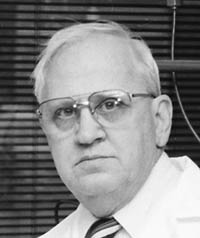 In Memory of Franklin P. Koontz In Memory of Franklin P. Koontz
Franklin P. "Frank" Koontz, Ph.D., Professor of Pathology, died Thursday morning, November 1, 2001, at his home following a short illness.
Dr. Koontz was born November 13, 1932 to Charles and Cecelia Klaus Koontz in Baltimore, where he was raised.
He served in the United States Navy and Marine Corps from 1950 to 1953 during the Korean Conflict. In 1958 he received his Bachelor of Science degree, Masters of Science degree in 1960 and Ph.D. in Microbiology in 1963, all from the University of Maryland. In 1964, he completed a National Institutes of Health postdoctoral fellowship at the University of Oxford in England.
After completing his fellowship, he became assistant director of the State Hygienic Laboratory, a position he held until 1976 when he became director of the Clinical Microbiology Laboratory at the University of Iowa Hospitals and Clinics. He joined the faculty of the College of Medicine in 1963 and was a longstanding professor in the Department of Pathology.
Dr. Koontz was a popular speaker and gave over 400 lectures, primarily on sexually transmitted diseases, to civic groups, high school and college students throughout the state of Iowa during the 1970’s. Governor Robert D. Ray appointed him head of the Governor’s Task Force on Venereal Disease in 1973. He was also a dynamic teacher of medical students and residents and an internationally recognized speaker in the areas of clinical microbiology, laboratory automation, infection control and epidemiology.
Dr. Koontz was a Diplomat in the American Board of Medical Microbiology and had over 100 scientific publications. In 1995 he received the bioMerieux Vitek Sonnenworth Award for leadership in clinical microbiology from the American Society of Microbiology. During his career he served on the editorial boards of several scientific publications, on a Food and Drug approval panel and on a National Committee on Clinical Laboratory Standards. He also served as Chair and Vice-Chair of the Executive Committee of the College of Medicine as well as on many Hospital and university committees.
Dr. Koontz’s candor and wonderful sense of humor will truly be missed in Pathology.
As a lasting memorial to his many contributions to the department and to the field of clinical microbiology, Dr. Koontz's family has worked with the University of Iowa Foundation to establish an endowed lectureship fund in his name. The Dr. Frank Koontz Memorial Lectureship in Pathology will support an annual lectureship within the Department of Pathology. Memorials may be made to the Dr. Frank Koontz Lectureship Fund, Account #30-526-010 at The University of Iowa Foundation, PO Box 4550, Iowa City, Iowa 52244.
 |
New Faces
in the Department
|
We have recently hired new faculty and administrative staff, and there have been several personnel changes within the Department as well. In addition, new housestaff started in July. Please join me in welcoming them to the Department!
- New Faculty
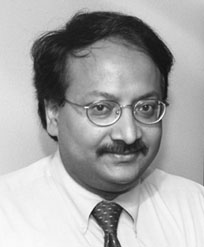 Yash Pal Agrawal, M.D., Ph.D. Yash Pal Agrawal, M.D., Ph.D.
Assistant Professor
Chemistry
Yash joined the Department of Pathology on August 1st as an Assistant Professor with primary duties in Chemistry. He has wide experience in Clinical Pathology and has trained at the Massachusetts General Hospital. Before moving to the United States, he was Assistant Chief of the Clinical Chemistry Laboratory in Kuopio, Finland. His current research interests are in the use of proteomic approaches for cancer diagnosis.
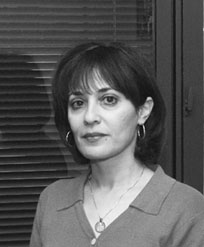 Laila Dahmoush, M.D. Laila Dahmoush, M.D.
Assistant Professor
Cytopathology and Surgical Pathology
Laila also started August 1st in Cytopathology and Surgical Pathology. She has special interests in fine needle aspiration biopsies, cytohistologic correlations of gynecologic and non-gynecologic specimens, breast, gynecologic and urologic pathology. Laila received her M.D. from Alexandria School of Medicine in Egypt, and then completed her post-graduate medical training at George Washington University Hospital and the University of Maryland Medical System in surgical pathology and the National Institutes of Health (NCI) in cytopathology.
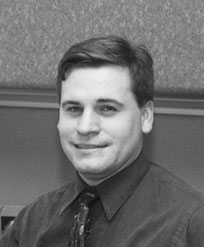 Michael S. Icardi, M.D. Michael S. Icardi, M.D.
Assistant Professor
Immunopathology
Michael started August 1st in the Immunopathology Division where his primary duties will include flow cytometry and immunoflouresence. He had just completed a fellowship in Immunopathology and Transplant Pathology at the University of Miami.
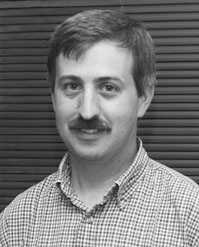 Alan Junkins, Ph.D. Alan Junkins, Ph.D.
Professor
Clinical Laboratory Sciences Program
Alan joined the Department of Pathology August 1st as Professor of Clinical Pathology and instructor in the CLS Program where he will be teaching clinical microbiology and participate in developing and coordinating a diagnostic molecular scientist program. For the past ten years, he served as faculty of the Medical University of South Carolina, where he taught clinical microbiology, research methods, and statistics.
 Di Lu, M.D. Di Lu, M.D.
Assistant Professor
Cytology
Di started July 1st as an Assistant Professor in Cytology. He received his M.D. from Shanghai Medical University in China and just completed his post-graduate training from the University of Florida Health Science Center, where he also was a cytopathology fellow. His research interests include tumor cell biology and modern diagnostic cytopathology. Di believes that cytomorphological recognition of various types of tumor cells and the investigation of their underlying biological characteristics will lead to a new dimension in cancer diagnosis and treatment.
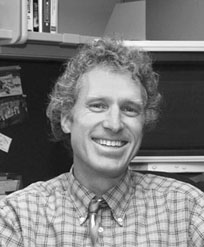 Thomas J. Raife, M.D. Thomas J. Raife, M.D.
Associate Professor in Transfusion Medicine
Assistant Medical Director
Head of Hemapheresis Services
Tom returned on July 1st to the department as Associate Professor in Transfusion Medicine. Dr. Raife received his M.D. from the University of Iowa in 1989 and completed his post-graduate training as one of our transfusion medicine fellows in 1994. His research efforts focus on pathogenesis of microvascular thrombosis in thrombotic microangiopathic disorders.
Dr. Raife has recently assumed a position as Assistant Medical Director, Head of Hemapheresis Services. He will have responsibility and authority — as delegated by the Medical Director — for all medical and technical policies, processes and procedures in the DeGowin Blood Center related to both donor and patient hemapheresis procedures.
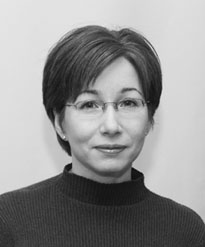 Sandra Richter, M.D. Sandra Richter, M.D.
Assistant Professor
Clinical Microbiology
Sandra Richter, M.D., joined the faculty as an Assistant Professor in the Medical Microbiology Section on October 1, 2001. Sandra is not a stranger to the Department since she completed her residency training here in 2000 and just finished a fellowship in Microbiology.
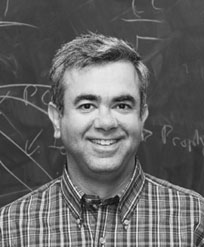 Sanjeev Sethi, M.D., Ph.D. Sanjeev Sethi, M.D., Ph.D.
Assistant Professor
Renal and Surgical Pathology
- Sanjeev joined the department on July 1st as an Assistant Professor in Renal and Surgical Pathology. His primary clinical interest is in the understanding and diagnosis of diseases that affect the kidney and teaching renal pathology. Sanjeev obtained his Ph.D. in Pathology and Laboratory Medicine from Albany Medical College in New York and completed his residency in Pathology and Laboratory Medicine at Yale University School of Medicine and Yale-New Haven Hospital. Before joining our faculty he completed a fellowship in renal and electron microscopy from Brigham and Women’s Hospital and Harvard Medical School in Boston, Massachusetts.
New Administrative Staff
Judy Elleson, B.B.A., M.B.A.
Administrator
Ms. Judy Elleson, will be joining the Department as Administrator, effective December 1, 2001.
Ms. Elleson will be responsible for planning and directing the administrative operation and activities of the department. She will also work closely with UIHC Administration and the College of Medicine Administration, coordinating administrative and management policies and practices.
Ms. Elleson earned her B.B.A. in 1980 and M.B.A. in 1992, both from the University of Iowa. She brings over 20 years of UIHC administrative experience to this position. She began her career in the Department of Nursing, where she spent ten years as their financial manager. Subsequent positions included Assistant Director for Child Health Specialty Clinics, Associate Director for Clinical Outcomes and Resource Management, as well as her current role as Associate Director in the Joint Office for Compliance.
Ms. Elleson’s record of exceptional leadership at University of Iowa Health Care since 1980 makes her the outstanding candidate to provide administrative direction and support to our continued tradition of excellence for providing quality-centered anatomic and clinical pathology activities in support of patient care, innovative educational programs for students and staff, and research activities.
New Residents
Michelle K. Bianco, M.D.
1st year resident in Pathology; Medical School: University of North Dakota, 2001. Training Goals: Michelle is in a combined AP/CP Program.
Aaron D. Bossler, M.D., Ph.D.
1st year resident in Pathology; Medical School: University of Iowa, 2001. Training Goals: Aaron is in a combined AP/CP Program.
Christopher J. Johnson, M.D.
1st year resident in Pathology; Medical School: University of Iowa, 2001. Training Goals: Christopher is in a combined AP/CP Program.
Jamie A. Weydert, M.D.
1st year resident in Pathology; Medical School: University of Iowa, 2001. Training Goals: Jamie is in a combined AP/CP Program.
M. Ayman Asfour, M.D.
4th year resident serving as a Transfusion Medicine Fellow; Medical School: Alexandria University, Egypt, 1978; Internship, Alexandria University, Egypt, 1979-1980; Pediatrics Residency, Dammanhour Teaching Hospital, Egypt, 1980-1984; AP/CP Residency, University of Mississippi, 1998-2001.
New Fellows
Mark Magilner, M.D.
Fellow in Cytopathology; Medical School: Jefferson Medical College, Pennsylvania, 1996; AP/CP Residency, Oregon Health Sciences, 1996-2001.
Margaret L. Menezes-Ruocco, M.D.
Fellow in Cytopathology; Medical School: University of Minnesota, 1996; Transitional, Hennepin County Medical Center, 1996-1997; AP/CP Residency, Evanston Northwestern Healthcare, 1997-2001.
Maurice J. Schuetz, III, M.D.
Fellow in Hematopathology: Medical School: Indiana University, 1996; AP/CP Residency, Ball Memorial Hospital, 1996-2001.
House Staff who Have Changed Their Positions
Julie L. Lessard is a Surgical Pathology Fellow (5th year Resident)
Paul D. Murray is a Surgical Pathology Fellow (5th year Resident)
Sanjai Nagendra is a Research Fellow (5th year Resident)
Manaf Ubaidat is a Surgical Pathology Fellow (5th year Resident)
Michael L. Woltman is a Surgical Pathology Fellow (4th year Resident)
PathBeat is published for alumni and friends of the Department of Pathology, UI College of Medicine. Feedback and suggestions regarding PathBeat should be directed to Vicki Brown, 319-335-8232, Fax: 319-335-8916 or E-mail: vicki-brown@uiowa.edu. For easy contact, please send us your e-mail address.
|

 Charles E. Platz, MD, Honored
Charles E. Platz, MD, Honored In Memory of Franklin P. Koontz
In Memory of Franklin P. Koontz




 Di Lu, M.D.
Di Lu, M.D.

